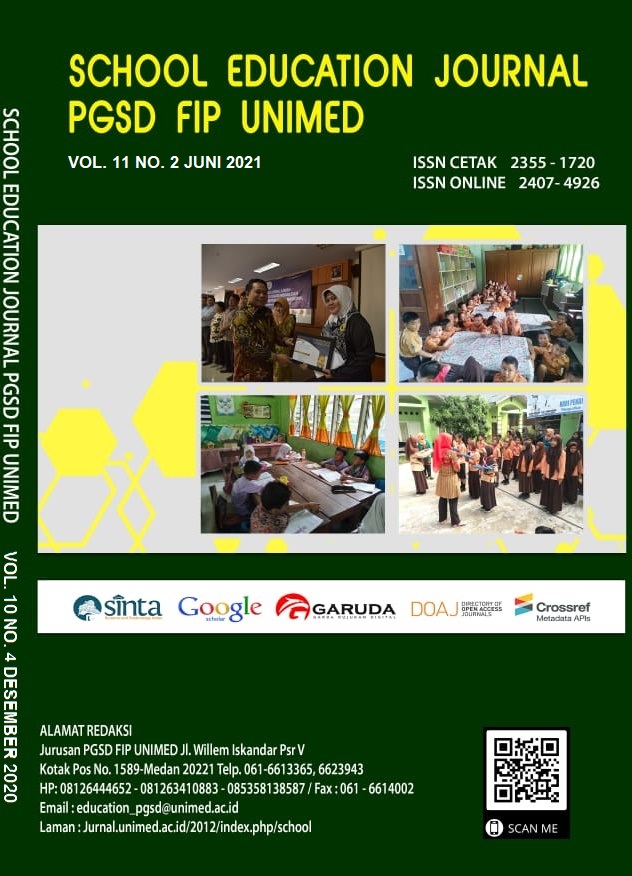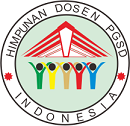PENERAPAN E-LEARNING MELALUI PEMBELAJARAN BERBASIS MASALAH UNTUK MENINGKATKAN KEMAMPUAN PEMECAHAN MASALAH MATEMATIS MAHASISWA
DOI:
https://doi.org/10.24114/sejpgsd.v11i2.27203Abstract
This study aims to determine whether the application of e-learning in problem-based learning can improve the problem solving abilities of FMIPA Unimed students. The approach used in this research is descriptive qualitative research by actively involving through e-learning the actors in the learning process, namely lecturers and students, as well as other related subjects. This study's design consists of three stages: (1) the development of learning tools and research instruments, (2) the testing of learning tools and research instruments, and (3) the implementation of experiments. Keywords: Electronic Learning, Problem-Based Learning, Mathematica Problem Solving AbilityReferences
Arends, I. R. 2008. Learning To Teach Belajar Untuk Mengajar Buku Satu. Yogyakarta: Pustaka Pelajar.
Arikunto, S. 2002. Dasar-Dasar Evaluasi Pendidikan. Jakarta: Bumi Aksara
Atun, I. 2006. Pembelajaran Matematika Dengan Strategi Koopretaif Tipe Student Teams Achievement Divisions Untuk Meningkatkan Kemampuan Pemecahan Masalah dan Komunikasi Siswa. Tesis tidak diterbitkan. Bandung: Program Pascasarjana UPI Bandung.
Barrows, S.H. 2003. Problem Based Instruction (PBI). (Online). (http://web.cortland.edu/frieda/ID/IDtheories/46.html, diakses 10 Oktober 2009).
Ben-Zeev, T, & Sternberg, R.J. 1996. The Nature of Mathematical Thinking. Mahwah. NJ: Lawrence Erlbaum Associates Inc.
Dahar, R.W. 1989. Teori-Teori Belajar. Jakarta: Erlangga.
Depdikbud. 1995. Garis-garis Besar Program Pengajaran (GBPP) Mata Pelajaran Matematika. Jakarta: Depdikbud.
Published
Issue
Section
License
Authors whose manuscripts are approved are approved as follows:
- The publication rights for all journal manuscript materials published/published on the SEJ (School Education Journal) E-Journal site are held by the editorial board with the author's knowledge (moral rights remain with the manuscript authors).
- The formal legal requirements for accessing this electronic digital journal article are subject to the terms of the Creative Commons Attribution-ShareAlike (CC BY-SA 4.0) license, which means that E-Journal SEJ (School Education Journal) has the right to store, transfer media/format, manage in the form of a database, maintain, and publish articles without asking permission from the author as long as the author's name remains as the copyright owner.
- Manuscripts published/published electronically are open access for educational, research, and library purposes.










